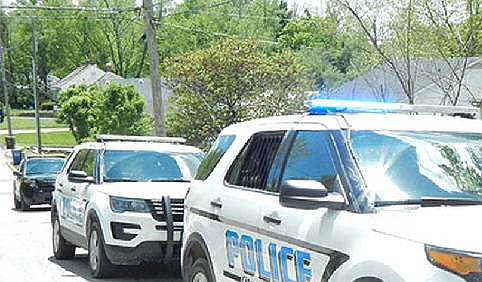Several state lawmakers and groups that analyze the annual report think it's time to make the Missouri attorney general's annual traffic stops report more useful.
And it's the opinion of Attorney General Chris Koster, who said in the Wednesday's report, "The General Assembly should solicit suggestions from the relevant stakeholders - including law enforcement, local governments, and representatives from the communities they serve - regarding measures to improve the report."
Koster said revisions to the traffic stops reporting law "could include changes in the type of data collected and to strengthen the penalties for individual departments that fail to participate in the reporting process."
Under the current law, the governor may withhold state funds for any law enforcement agency that does not comply with the law, which requires all local information be reported to the attorney general's office by March 1 - and requires the report to be released no later than June 1.
State Rep. Courtney Allen Curtis, D-St. Louis, complained Wednesday that Koster's releasing the report after the legislative session "amounts to political posturing by our attorney general (and) comes across more as being primarily motivated by his upcoming election for governor."
But Koster spokeswoman Nanci Gonder noted since Koster became attorney general in 2009, the report has been issued no earlier than May 30.
Wednesday's report showed African-Americans, who represent 10 percent of Missouri's population, accounted for 17 percent of traffic stops statewide, making black drivers 69 percent more likely to be pulled over by police than white drivers.
"Police departments that routinely exhibit racist practices must be addressed, and there must be penalties for departments that intentionally stop people because of their skin color," Sen. Maria Chappelle-Nadal, D-University City, said in a Thursday news release.
"'Driving While Black' has been a crime for far too long. We cannot fix it with one statute, but we must begin to act."
Jeanette Mott Oxford, director of Empower Missouri, noted her group reviews the attorney general's data "for after the stop has been made because often there are more conscious choices by a police officer."
Don Love, chair of Empower Missouri's Human Rights Task Force, said it's more "useful to look at things in which officers have a great deal of control," such as asking someone who's been stopped if they will consent to a search of a vehicle for possible contraband.
"If they turn out asking people of color for consent disproportionately," Love explained, "then we have a valid right to ask questions about whether they're being influenced by the color of the skin of that person."
Rod Chapel Jr., president of the Jefferson City NAACP Branch, said in a statement: "The failure of local police departments to adequately address these stops with a plan and action gives credence to the #blacklivesmatter movement, and concerns (of) some peace officers' unchecked bias."
And the Rev. Cassandra Gould, pastor of Jefferson City's Quinn Chapel A.M.E. Church and executive director of Missouri Faith Voices, said in a separate statement: "This is the 16th year of the report and, despite the racial tensions that erupted in Ferguson and at Mizzou, and the series of conversations on race that followed, we still have a long way to go."
Mott Oxford noted community conversations about collecting data and training officers better is important to making improvements, she said.
Empower Missouri and others supported bills this year that proposed changes in law enforcement operations, to reduce racial bias - including keeping similar statistics on stops made of pedestrians as well as vehicles.
Jason Groce, chief of staff for state Sen. Jamilah Nasheed, D-St. Louis, told the News Tribune that, while those bills didn't get passed this year, their future is looking better.
He also said some law agencies seem to target African-Americans more "based on the nicer the car, versus the older the car," and if they're near a historically black school like Lincoln University, especially at the beginning of the school year and during major events like homecoming.

